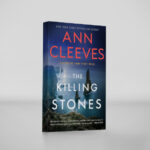In a fast-paced newsroom or a quiet room on a yoga mat, you’ll find her — a woman equally comfortable dissecting global politics as she is singing Carpenters ballads behind closed doors. Rajini Vaidyanathan has built a journalistic career that spans continents and crises, yet it’s her deep-rooted curiosity, empathy, and social consciousness that shine through most vividly.
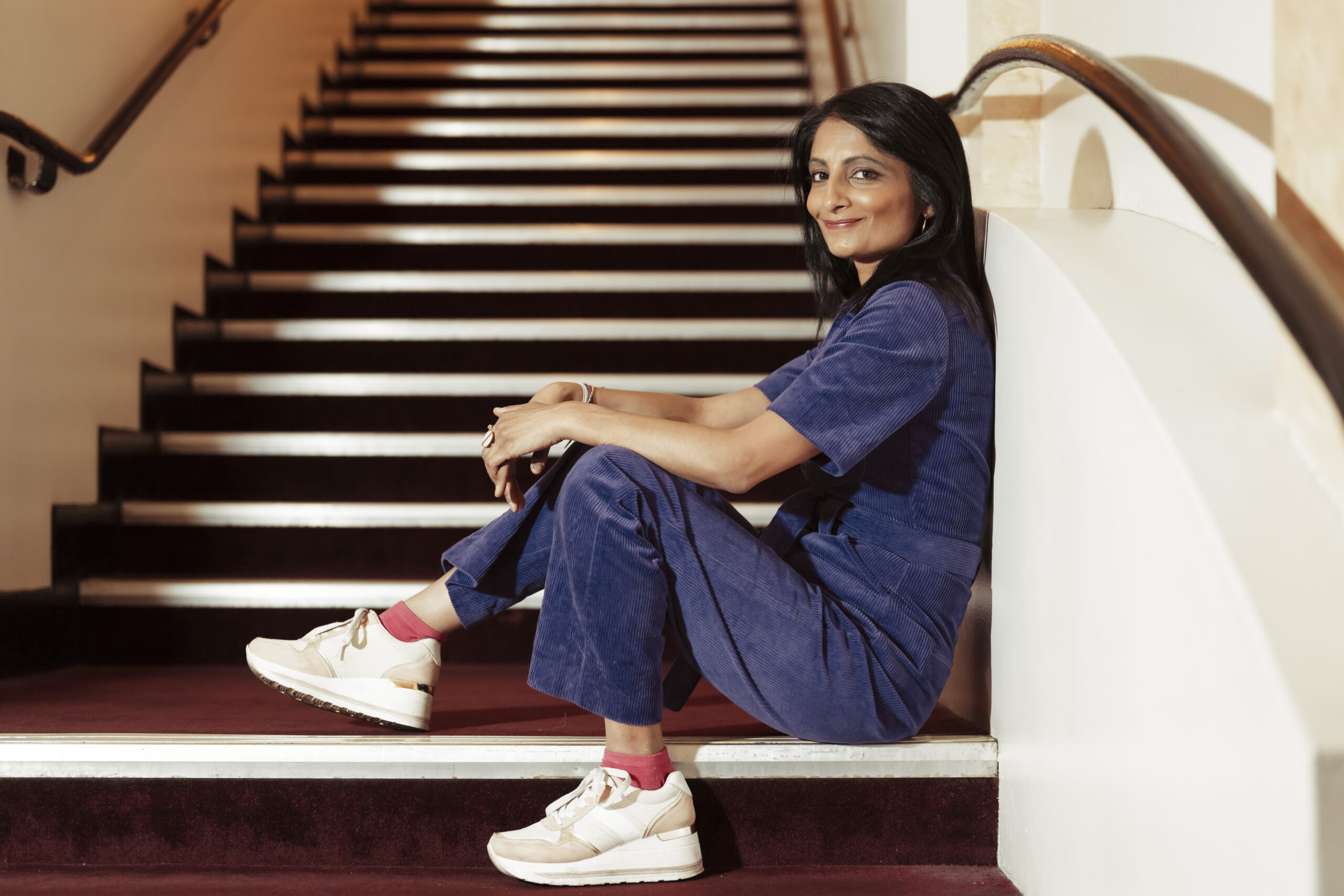
Where the Story Begins
From the very beginning, news has been part of Vaidyanathan’s DNA.
“My parents always watched the news,” she recalls. “They ensured that we understood the world around us, even beyond our home in the United Kingdom. I remember one of my dad’s brothers berating him for having the 6 o’clock news on instead of cartoons. But I’m glad we were exposed to current affairs early. It shaped our ideas of justice and morality.”
That early immersion into current events was more than background noise — it became the foundation of her stunning career. It didn’t take long before Vaidyanathan’s curiosity and love of news transformed her into a truth seeker.
“My first foray into journalism was as editor of the school newspaper. While my fellow students fought over who was writing the Valentine’s pages, I wanted to write about my local town’s connections to the first Gulf War. I phoned up the local army reservist unit and the hospital, and it was my first taste of reporting on an angle on international conflict.”
It was not only hard-hitting news that captured Vaidyanathan’s interest. Her curiosity and creativity extended beyond the school newsroom. Years later, she found a way to combine her journalistic instincts with her love of music — by creating and selling her own music fanzines at live gigs.
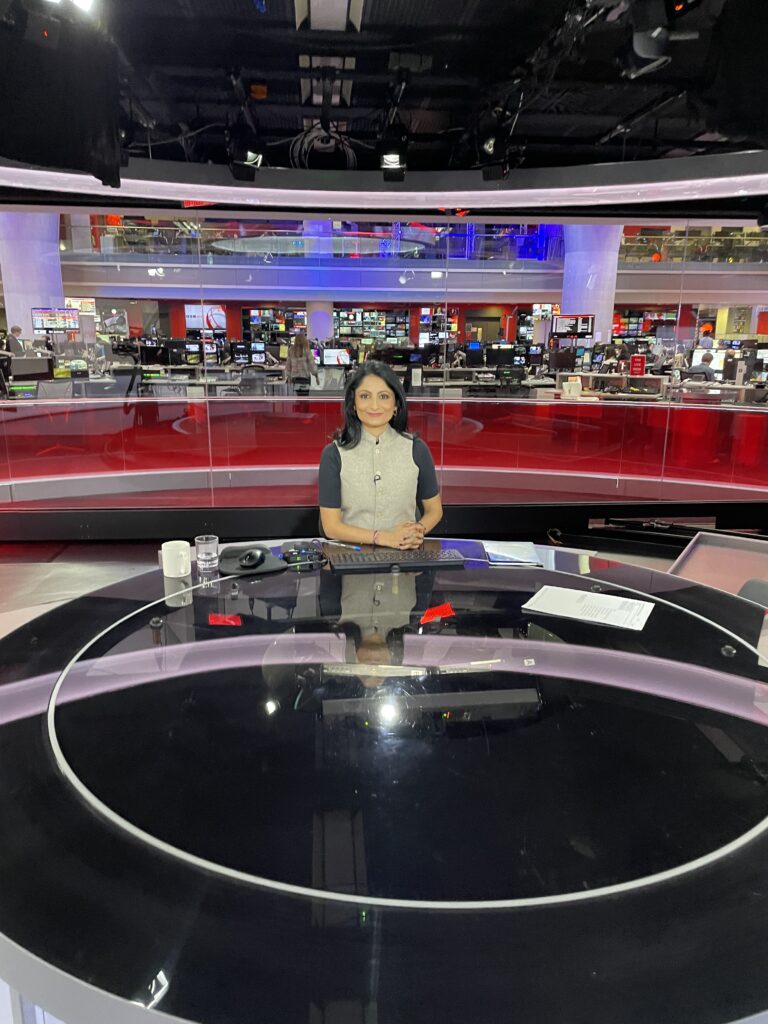
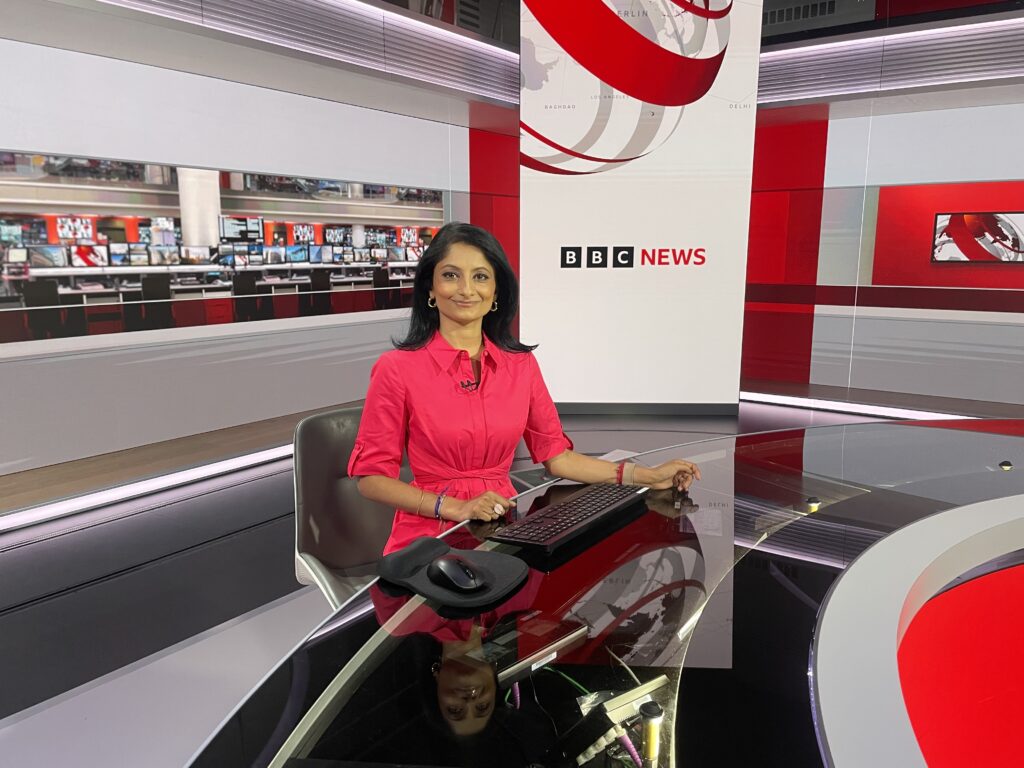
“This combined two goals — getting free tickets to see my favorite bands and also getting to meet them as I interviewed them,” says Vaidyanathan. “My first fanzine was the ridiculously titled Mutant Duck. I then wrote one dedicated to the indie band Travis, and through that struck up a friendship with the band which lasts to this day.”
Although it was a different kind of storytelling, those fanzines proved early on that Vaidyanathan was as comfortable in a crowded concert venue as she would later be in a presidential press briefing room.
Perhaps what drew her to write about music—aside from her stated goals—was the fact that Vaidyanathan is a musician herself. “Aside from writing about music, I loved making music.” She played Viola in an orchestra and a string quartet. She also played the piano. “I taught myself guitar, but most of all, I loved to sing! I’d hide myself in my bedroom while I belted our Carpenters songs. Nowadays I still sing at friends’ weddings, but that’s the limit!”
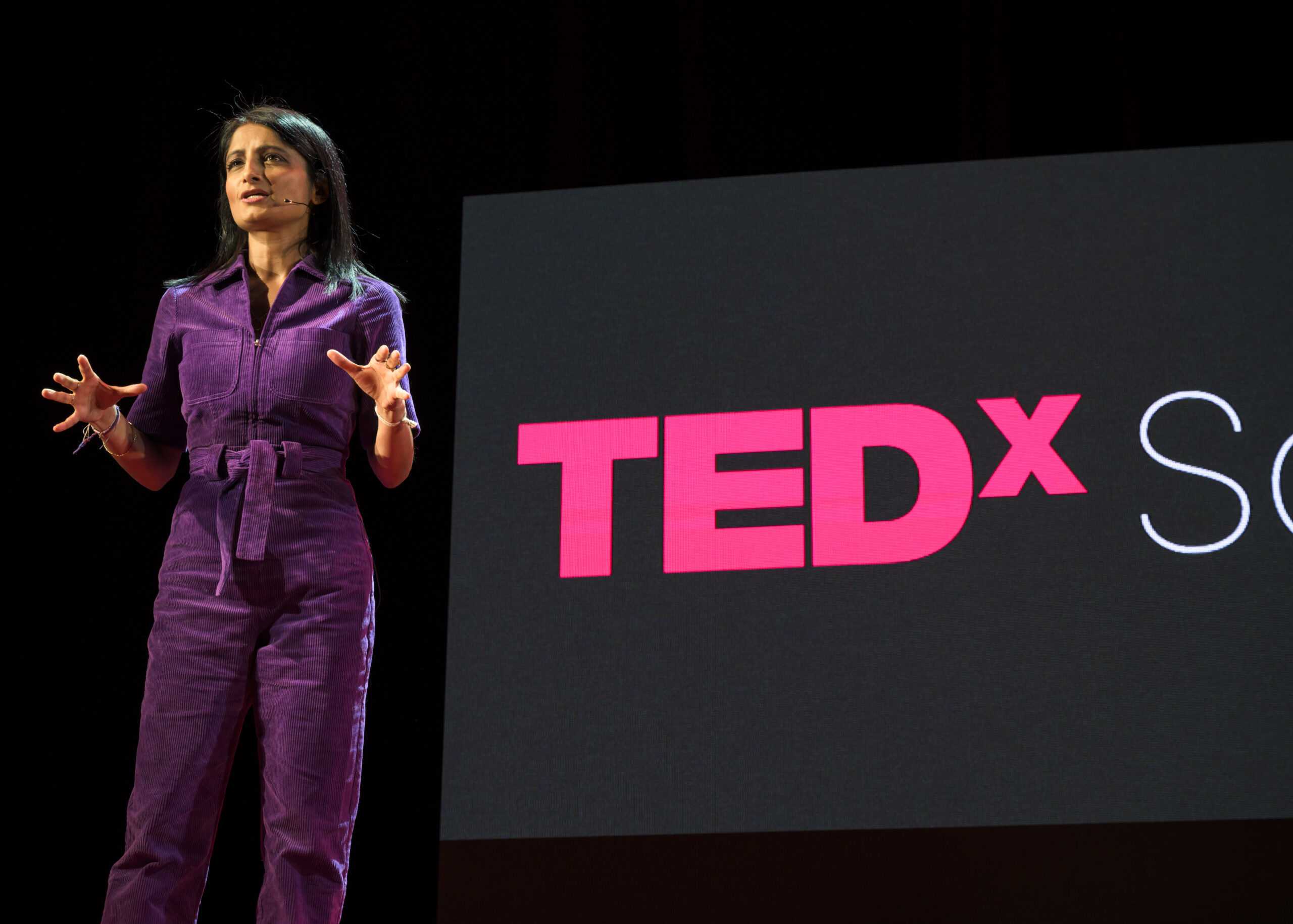
With secondary school in the rear-view mirror, Vaidyanathan immersed herself in the media space at the University of York, from which she graduated with a Bachelor of Arts degree in Politics, Philosophy, and Economics (PPE).
“I edited the student paper. It was one of the biggest responsibilities I’d had at that time. Managing the newspaper’s budget, sorting the print run, managing the different writers, and finding stories. Not only did that give me so many different skills. I also made many friends for life through it.”
During the summers of her university years, Vaidyanathan took bold steps. She participated in work experience programs at the BBC’s Westminster unit and even interned in Washington, D.C. “I knew that these were areas that I’d want to work in ‘for real’ one day. Picking up any knowledge in those areas definitely helped. Even if that included making tea for important people!”
From Behind the Scenes to On the Scene
Vaidyanathan’s identity as a British Indian woman played a pivotal role in not only shaping her worldview but also her career. “My culture and connection to India have always been a big part of my life. My parents navigated the balance, ensuring that we were fully integrated into British life and culture but also connected to their land of birth.”
That duality didn’t just make her feel more connected — it led her down her career path. It was her connection to India that later led her to work at the BBC.
“My interest in my Indian culture led to my decision later in life to be a BBC stringer in Mumbai, which later helped me secure one of my dream jobs as the BBC South Asia correspondent in Delhi.”
Since then, Rajini Vaidyanathan has built a career defined by history-making assignments. She has told stories that shift perspectives and challenge those in power. When asked if there’s a single moment that she’s most proud of in her reporting, her answer is expected.

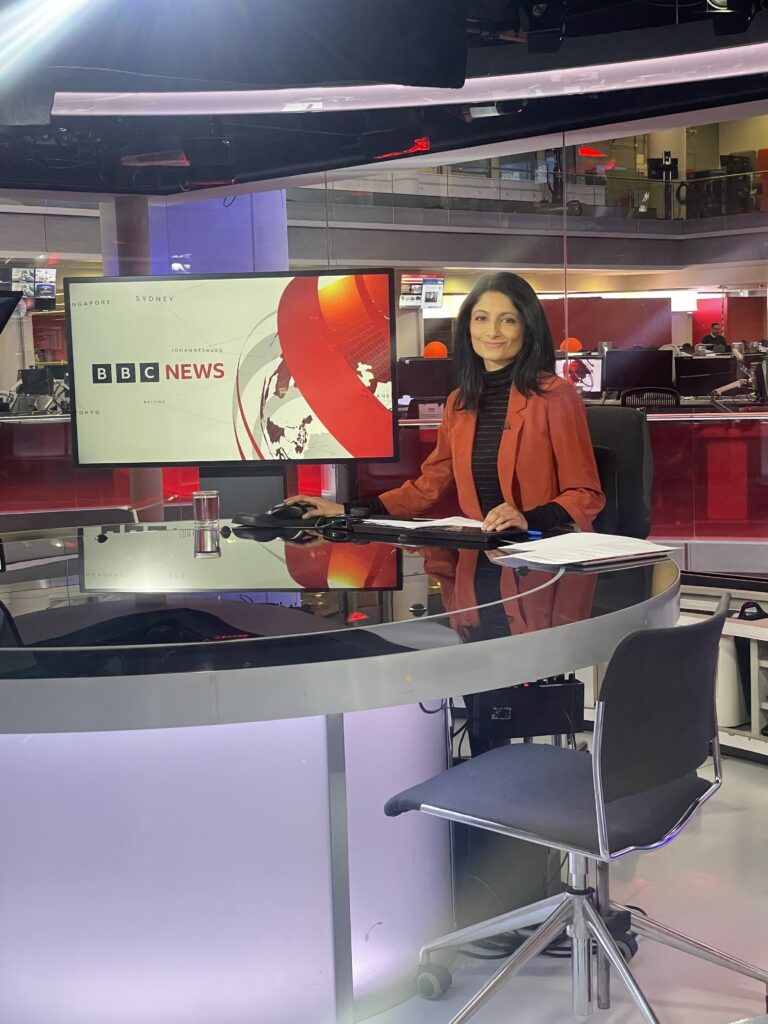
“I don’t think it’s possible to pick just one moment,” Vaidyanathan says. “Some of my investigative work has been especially meaningful, particularly when it has helped change the conversation around an issue. That includes exposing sexual abuse in the Bollywood film industry, speaking with survivors of Larry Nassar’s abuse, interviewing Indian women working in factories exploited by major Western brands, and talking to families of Nepali migrant workers who died while working in Qatar.”
She continues, “I’ve also had the privilege of witnessing history up close — standing on the National Mall during Donald Trump’s inauguration, sitting in the White House Briefing Room for Barack Obama’s final press conference as President. I’ve interviewed British politicians like Keir Starmer, David Cameron, and Tony Blair, and reported from Sri Lanka during its recent economic crisis, as thousands stormed the presidential and prime ministerial residences. I’ve covered everything from the red carpet at the Oscars to the Football World Cup in Russia. It’s been hard work, but it’s been worth it. I’m grateful.”
Rajini Vaidyanathan is now one of the BBC’s trusted news presenters, a familiar face behind the anchor desk. But the imprint of her years in the field remains unmistakable. Her reporting shaped not only her career, but also her approach to storytelling.
“I love being in the anchor chair now, but for me, nothing beats getting out and talking to people and hearing their stories,” she says. “Part of that job does involve speaking to people in their hardest moments, but it is honestly an honor when people choose to open up to us in that way.”
Her words reflect a deep respect for the human side of journalism, and it is one built over years of bearing witness to lives in transition, turmoil, and resilience. Even in the controlled environment of a studio, it’s clear her heart remains with the people whose stories she tells.
That aspect of reporting genuinely touches Vaidyanathan. “I was asked to do a TEDx talk in 2024, and I focused on the subject of covering grief on a regular basis. How that feels when you’re grieving yourself. I lost my dad in 2016 and miss him.”
Rajini Behind the Camera
In journalism, there’s no such thing as a “typical day.” But there are rituals that Vaidyanathan ascribes to. A trained yoga teacher, she carves out time for regular practice, meditation, and mindfulness. “Yoga, sound baths, gratitude — they help me stay grounded.”
Also, to stay grounded, Vaidyanathan remains connected to her circle of support. She’s quick to credit the people around her. “There are people I turn to for advice or just to vent — mentors, friends, family. They keep me balanced.”
And what would that tight circle tell us about this woman? They know a side of her that the broadcasting audience does not…
“They’ll tell you I love connecting people — bringing together folks from all walks of life for great food and conversation. They might tell you that I love to sing. I even recorded an album once, when I lived in India!”

They might also tell us about the street dog Vaidyanathan adopted in India. The abandoned puppy was dumped in a park along with her siblings. “I was never ever a dog person, but she somehow drew me in. Nearly four years later and the dog from the Delhi streets is still with me in London. She’s called Devi – it means Goddess. She’s definitely a Diva!”
Vaidyanathan was diagnosed with severe endometriosis in 2024. Endometriosis – a chronic medical condition where tissue similar to the lining of the uterus can attach to organs like the ovaries, fallopian tubes, the outer surface of the uterus, and even the bladder or intestines – affects 1 in 10 women worldwide.
“Up until then I had to endure severe, at times crippling pain while in the studio and the field. For years, I felt extra tired at times and was in so much pain that I was bent double. Looking back, I’m not sure how I managed so many international trips and even studio appearances. Finally, after a decade of misdiagnosis in the United States, India and the United Kingdom, the condition was spotted. After two surgeries in 2024, I’m much better, although the condition never truly goes away. It’s important for me to use platforms to encourage more awareness around the subject. Which is why I’m mentioning it now, too.”
Has Vaidyanathan made mistakes? Of course — but none she regrets. “Every stumble has taught me something — usually patience, humility, or to listen more.” She’s learned that the best reporting isn’t just about being first, but about being right, being fair, and above all, being human.
We asked Rajini this question: If you weren’t in this profession, what would you be doing now? Her answer shouldn’t surprise us. “I’d be singing. And teaching yoga.”
But for now, her voice belongs to the newsroom — telling the world’s stories, one headline at a time.


